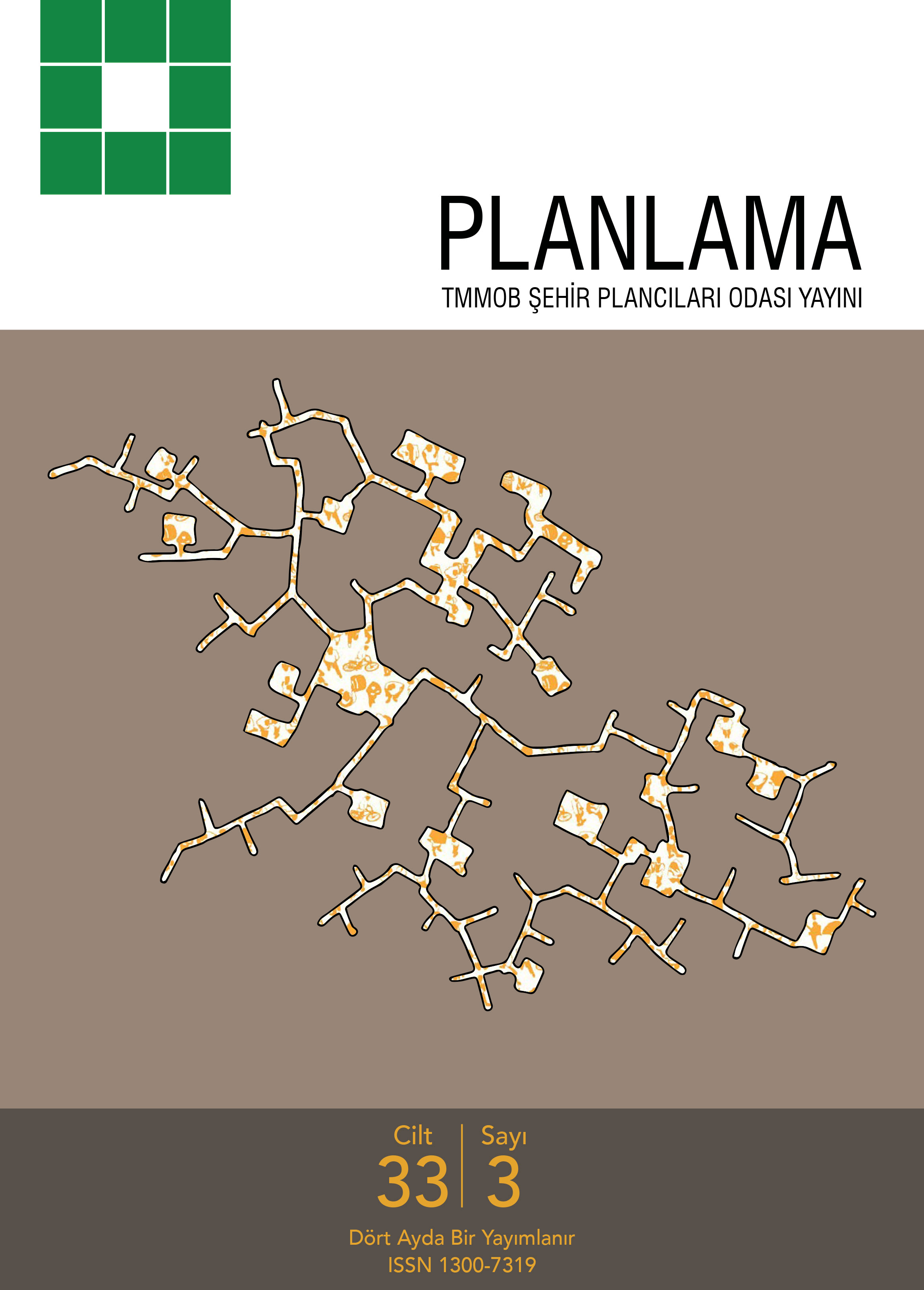Konut Üretiminde Karma Mülkiyet Stratejisinin Türkiyede Uygulanabilirliği
Selin Çınar Erdüzgün, Füsun Çizmeci YöreşYıldız Teknik Üniversitesi Mimarlık Fakültesi, Mimarlık Anabilim Dalı, İstanbulKüreselleşme ve neoliberal politikaların etkisiyle kentsel mekanlar birer metaya dönüşmektedir. Bu durum, kentte yaşayan bireyler arasındaki eşitsizlikleri arttırarak kentsel yoksulluğun belirginleşmesine, dezavantajlı grupların kentin dışına itilmesine, kent sakinleri arasında ayrışma ve kutuplaşma gibi sosyal problemlere neden olmaktadır. Gelir düşüklüğü, kente uyum sağlayamama, gecekondulaşma, çevre sorunları, yasadışı faaliyetler ve şiddet gibi birçok sorunun kaynağı olan kent yoksulluğunun önlenmesi, kentlerde mekânsal ve toplumsal sürdürülebilirliğin sağlanması için çeşitli politikalar hayata geçirilmektedir. Kentlerde ortaya çıkan sosyal problemlerle mücadele etmek ve sürdürülebilir yerleşmeler üretmek amacıyla oluşturulan konut politikalarından biri karma mülkiyet (tenure mix) yaklaşımıdır. Karma mülkiyet, pek çok ülkenin konut politikasını şekillendiren önemli bir strateji olmasına karşın Türkiyede politika ve uygulama alanında yer bulamadığı gibi bilimsel çevrelerde de yaygın olarak tartışılan bir konu değildir. Bunun en önemli nedenlerinden biri Türkiyede mülkiyet çeşitliliğinin ve bu çeşitliliğe ilişkin yasal zeminin oluşmamış olmasıdır. Bu çalışmanın amacı, dünya genelinde yapılmış bilimsel çalışmalar üzerinden karma mülkiyet yaklaşımını inceleyerek, bu yaklaşımın konut sorununun çözümüne sunduğu olanakları belirlemek ve Türkiyede uygulanabilirliğini sorgulamaktır. Görece yeni bir kavram olan karma mülkiyet, literatüre doksanlı yılların sonunda girmiş olmakla birlikte konu ile ilgili yapılmış, kavramı farklı yönlerden ele alan, sınırlı çalışma bulunmaktadır. Yapılan çalışmaların son yıllarda yoğunlaşması ve konunun güncelliğinin artması göz önüne alındığında, konu ile ilgili bütüncül bir analiz yapılması gerekliliği ortaya çıkmaktadır. Bu doğrultuda, bilimsel veri tabanlarında 20002022 yılları arasındayayınlanan konuyla ilgili makaleler meta analizi yöntemiyle değerlendirilmiştir. Çalışma sonucunda elde edilen verilerin, konut üretiminde farklı mülkiyet türlerinin analiz edilmesine ve konut sorununa nitelikli bir çözüm önermeye yönelik modeller geliştirilmesine katkı sağlayacağı düşünülmektedir.
Anahtar Kelimeler: Karma mülkiyet, konut politikaları, konut üretimi, meta analizi; sosyal karma.The Applicability of Mixed Tenure Housing in Turkey
Selin Çınar Erdüzgün, Füsun Çizmeci YöreşYıldız Technical University, Faculty of Architecture, Department of Architecture, Istanbul, TurkeyThe process of urban spaces being commodified, driven by the forces of globalization and neoliberal policies, exacerbates disparities among city dwellers, leading to heightened urban poverty, the displacement of marginalized groups, and the emergence of social issues like segregation and polarization within urban communities. To prevent urban poverty, which is the source of numerous problems such as low income, inability to adapt to the city, squatting, environmental problems, illegal activities, and violence, and to guarantee spatial and social sustainability in cities, various policies are implemented. The "tenure mix" method is one of the housing approaches intended to address these issues and create sustainable settlements. Despite its significance in defining housing policies in other countries, mixed tenure has not been incorporated into policy and practice in Turkey, nor has it received substantial attention in academic discourse. One of the primary factors contributing to this phenomenon is the limited range of tenure variety in Turkey, coupled with the absence of a legislative framework supporting such diversity. The objective of this study is to examine the mixed tenure strategy through a comprehensive analysis of scientific research undertaken globally. The study aims to assess the potential benefits of this approach in addressing housing issues and to critically evaluate its feasibility within the context of Turkey. The concept of "mixed tenure" emerged in the late 1990s and has since been discussed in the literature. However, there is a scarcity of research that comprehensively examine this topic from many perspectives. In light of the intensification of studies in recent years and the subject's growing relevance, it is necessary to execute a comprehensive analysis of the topic. The present study employed a meta-analysis approach to assess publications pertaining to the subject matterthat were published in scientific databases during the years 2000 to 2022. The data acquired from this study is believed to have the potential to enhance the analysis of various forms of tenure in housing production and aid in the formulation of models that can provide effective solutions to address the housing issue.
Keywords: Tenure mix, housing policies, housing production, meta-analysis; social mix.Sorumlu Yazar: Selin Çınar Erdüzgün, Türkiye
Makale Dili: Türkçe












